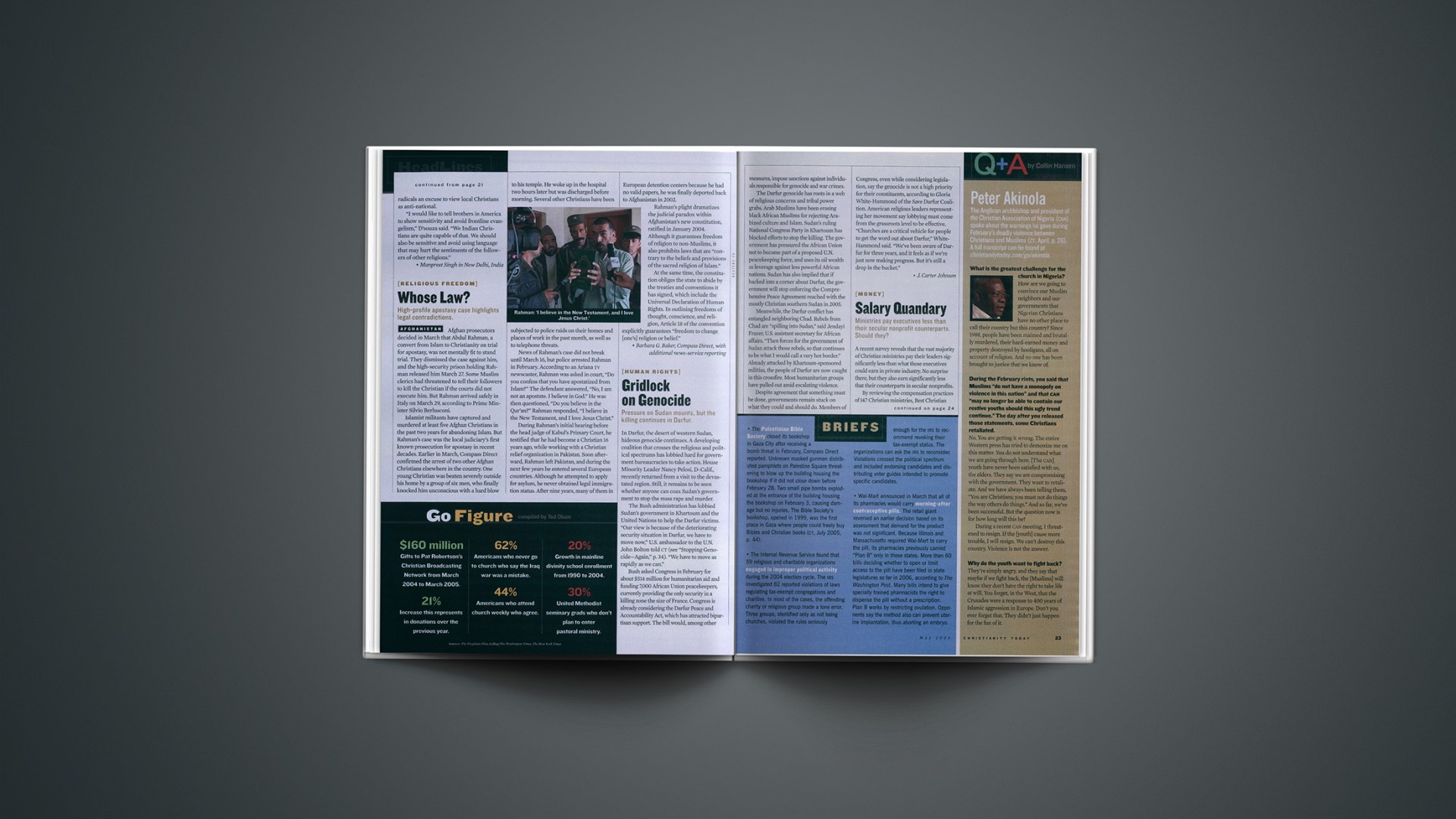Afghan convert Abdul Rahman may be safe in Italy, but many of his fellow believers in his home country are not. Several other Christians have been subjected to police raids on their homes and places of work in the past month, as well as to telephone threats.
In mid-March, as international protests over Rahman’s trial increased, one young Afghan convert to Christianity was beaten severely outside his home by a group of six men. The gang finally knocked the man unconscious with a hard blow to his temple. He woke up in the hospital two hours later but was discharged before morning.
“Our brother remains steadfast, despite the ostracism and beatings,” one of his friends said.
Afghan prosecutors decided in March that Rahman, a convert from Islam to Christianity on trial for apostasy, was not mentally fit to stand trial. They dismissed the case against him, and the high-security prison holding Rahman released him March 27. Some Muslim clerics had threatened to tell their followers to kill the Christian if the courts did not execute him. But Rahman arrived safely in Italy on March 29, according to Prime Minister Silvio Berlusconi.
Islamist militants have captured and murdered at least five Afghan Christians in the past two years for abandoning Islam. But Rahman’s case was the local judiciary’s first known prosecution for apostasy in recent decades.
News of Rahman’s case did not break until March 16, but police arrested Rahman in February. According to an Ariana TV newscaster, Rahman was asked in court, “Do you confess that you have apostatized from Islam?” The defendant answered, “No, I am not an apostate. I believe in God.” He was then questioned, “Do you believe in the Qur’an?” Rahman responded, “I believe in the New Testament, and I love Jesus Christ.”
During Rahman’s initial hearing before the head judge of Kabul’s Primary Court, he testified that he had become a Christian 16 years ago, while working with a Christian relief organization in Pakistan. Soon afterward, Rahman left Pakistan, and during the next few years he entered several European countries. Although he attempted to apply for asylum, he never obtained legal immigration status. After nine years, many of them in European detention centers because he had no valid papers, he was finally deported back to Afghanistan in 2002.
Rahman’s plight dramatizes the judicial paradox within Afghanistan’s new constitution, ratified in January 2004. Although it guarantees freedom of religion to non-Muslims, it also prohibits laws that are “contrary to the beliefs and provisions of the sacred religion of Islam.” At the same time, the constitution obliges the state to abide by the treaties and conventions it has signed, which include the Universal Declaration of Human Rights. In outlining freedoms of thought, conscience, and religion, Article 18 of the convention explicitly guarantees “freedom to change [one’s] religion or belief.”
Copyright © 2006 Christianity Today. Click for reprint information.
Related Elsewhere:
Also posted today is:
Religious Freedom Isn’t Free | Rights to faith and liberty are at risk in Afghanistan.—A Christianity Today editorial
Weblogfollowed the Rahmancase with comments and links to news articles.
CT covered the problems with Afghanistan’s constitution as it was being drafted.
The U.S. Commission on International Religious Freedom has a comparative study of Muslim constitutions that discusses the variety of ways Muslim countries balance Islam, religious freedom, and church-state separation.
NPR spoke with Richard Land and Rich Cizik about how the case would effect evangelicals’ support for Bush’s foreign policy.
CT’s full coverage of religious freedom and persecution issues is available on our site:
CT’s full coverage on Afghanistan is available on our site.










